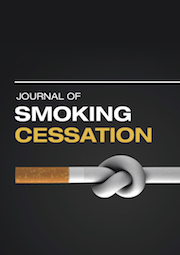Article contents
Use of Smoking Cessation Interventions by Physicians in Argentina
Published online by Cambridge University Press: 21 November 2014
Abstract
Background: Physician-implemented interventions for smoking cessation are effective but infrequently used. We evaluated smoking cessation practices among physicians in Argentina.
Methods: A self-administered survey of physicians from six clinical systems asked about smoking cessation counselling practices, barriers to tobacco use counselling and perceived quality of training received in smoking cessation practices.
Results: Of 254 physicians, 52.3% were women, 11.8% were current smokers and 52% never smoked. Perceived quality of training in tobacco cessation counselling was rated as very good or good by 41.8% and as poor/very poor by 58.2%. Most physicians (90%) reported asking and recording smoking status, 89% advised patients to quit smoking but only 37% asked them to set a quit date and 44% prescribed medications. Multivariate analyses showed that Physicians' perceived quality of their training in smoking cessation methods was associated with greater use of evidence-based cessation interventions. (OR = 6.5; 95% CI = 2.2–19.1); motivating patients to quit (OR: 7.9 CI 3.44–18.5), assisting patients to quit (OR = 9.9; 95% CI = 4.0–24.2) prescribing medications (OR = 9.6; 95% CI = 3.5–26.7), and setting up follow-up (OR = 13.0; 95% CI = 4.4–38.5).
Conclusions: Perceived quality of training in smoking cessation was associated with using evidence-based interventions and among physicians from Argentina. Medical training programs should enhance the quality of this curriculum.
- Type
- Original Articles
- Information
- Copyright
- Copyright © The Author(s) 2014
References
- 4
- Cited by


